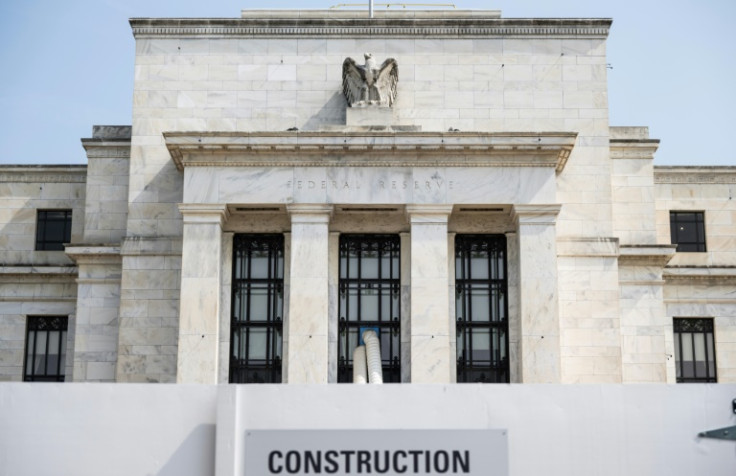FOMC June 2023 Meeting: A Pause Or A Skip?
When FOMC—the Federal Reserve's monetary policy arm—meets this week, it will likely leave interest rates unchanged.
That's according to the CME's FedWatch Tool, which analyzes the probabilities of changes in the Fed Funds Rate and U.S. monetary policy. This time, it points to a 71.2% chance of interest rates remaining unchanged and a 28.8% chance of a hike by 25 basis points.
But markets will pay close attention to the statement accompanying the FOMC decision to determine whether the Fed is pausing or skipping interest rate hikes.
That's a new dilemma the nation's bank is facing as the U.S. economy has moved closer to its dual pursuit of maximum employment and steady prices. But not close enough to provide clear signals as to whether the Fed is over with monetary tightening.
For instance, the U.S. labor market shows signs of cooling off, with job growth moderating and the unemployment rate edging higher. Nonetheless, the unemployment rate remains at a multi-year low, close to what economists call "the natural unemployment rate."
That's the unemployment rate consistent with full employment.
But further rate hikes could change the situation, push the economy into a recession and the labor market below full employment target. Thus, the case for an interest rate pause.
Still, there's inflation, which remains by most conventional measures, well above 2%, which the nation's central bank considers consistent with steady prices. Thus, the case for a skip in interest rate than a pause in interest rate hikes.
In addition, there are time lags in the transmission mechanism of monetary policy, which makes its full impact unpredictable. That's another argument for a pause, which could help policymakers figure out how the rate hikes have impacted the economy thus far.
Meanwhile, the Fed must cast a wary eye on the looming regional bank crisis and the prospect of a credit crunch that could further limit liquidity and push a slowing economy into a recession. It's another argument for a pause on rate hikes.
"Markets are ready for the Fed to take a break in June," David Russell, vice president of market intelligence at TradeStation, told International Business Times. "Nobody, including Jerome Powell, knows if it's a pause or a skip. Recent data argue in favor of a pause because we're seeing weaker inflation and weaker employment. However, policymakers have been blindsided before, so they will likely keep their options open. The Dot Plot and economic forecasts might mostly stay the same from March. "
Carlos Vaz, CEO of CONTI Capital, is with the pause camp."After hiking interest rates by a cumulative five percentage points over just 17 months, the Federal Reserve appears set to pause the June FOMC meeting," he told IBT. "The Fed is likely mindful of the lagged effects of monetary policy changes, the continued fallout from the banking crisis and some positive signs on the inflation front."
He further thinks that supporting a rate hike pause is the significant tightening in lending standards during the banking crisis. "It only compounds the tightening associated with over a year's worth of rising interest rates," he added. "From the commercial real estate side, we already see a significant downturn in commercial loan originations."
But Vaz doesn't see the pause as the prelude to monetary easing that bullish investors have been hoping for in recent months. "Having been slow to react to the persistence of inflation in late-2021 initially, we believe the Fed is in no mood to pivot to cutting interest rates through the remainder of 2023," he added. "Depending on the economic situation in 2024 — namely, unemployment and GDP growth — a steady pace of interest rate cuts could be in the cards."
Meanwhile, Russell expects this week's FOMC meeting to have little impact on markets, as a couple of committee members have already conveyed the outcome. "We could be entering a new phase when big macro items like inflation and the Fed matter less," he added. "Investors have been through many shocks in the last few years, and the next surprise could be a gradual return to normal. That could be the message from the VIX finally returning to pre-pandemic levels."
But there's an unknown that could tip the balance between skipping and pausing: The May Consumer Price Index (CPI) — a measure of retail inflation — which will be released on June 13, just as the FOMC meeting begins.
"If CPI blows out to the upside, all bets are off," Kevin Flanagan, head of fixed income strategy at WisdomTree, told IBT. "But assuming it comes in as expected, it would not surprise me to see the Fed not make a move."
Angelo Kourkafas, CFA, senior investment strategist at Edward Jones, see the Fed adopting a flexible stance.
"The Fed may hold off on hiking rates this month for the first time in more than a year, but the signal in its statement and new projections that it may raise rates again if data warrants it," he told IBT. "A June 'skip' instead of a 'pause,' and one final hike in July is possible. But the weaker growth that we anticipate will likely pave the way for the central bank to move to the sidelines through the remainder of the year."

© Copyright IBTimes 2024. All rights reserved.






















